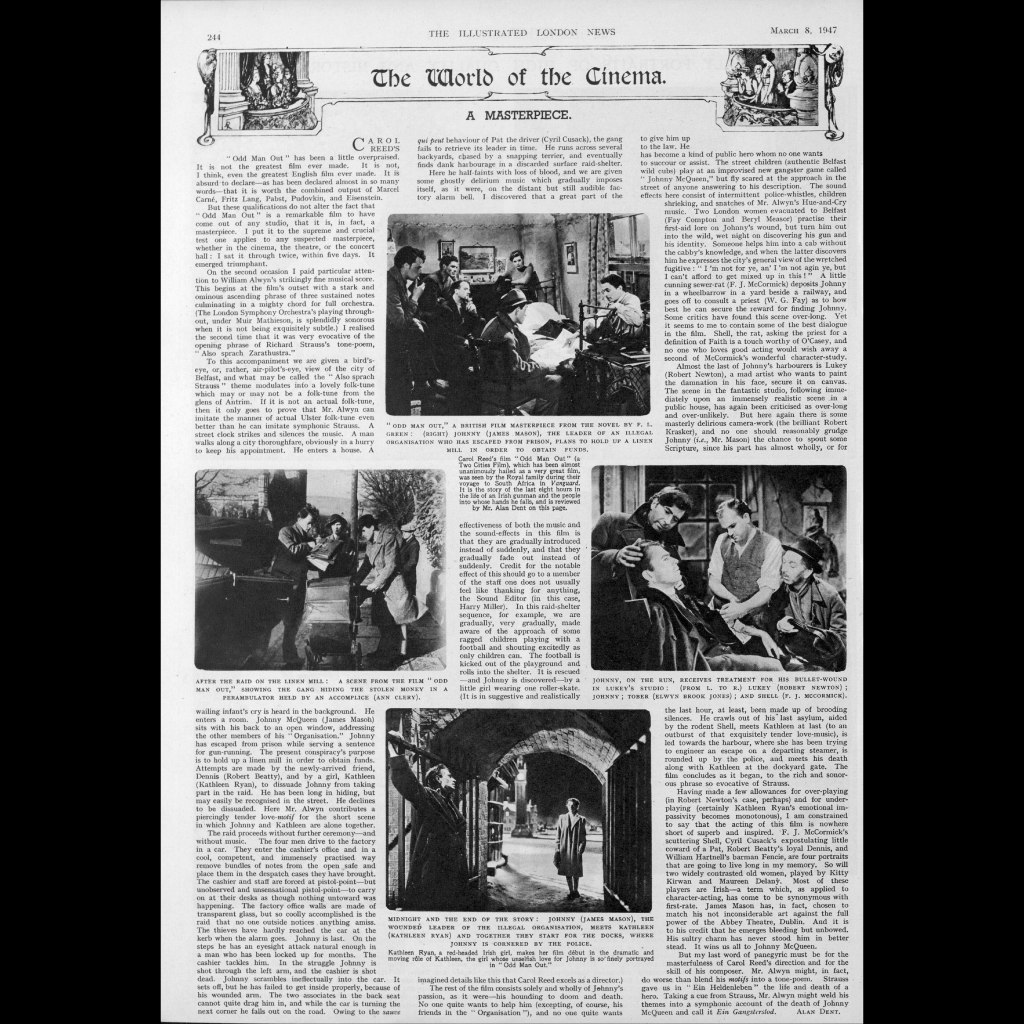
Carol Reed’s film Odd Man Out, photographed by Australian Director of Photography Robert Krasker, BSC, was hailed as the director’s masterpiece on it release and many film writers continue to refer to it as that to this day.
According to Wikipedia, the contemporary definition is “a masterpiece, magnum opus, or chef-d’œuvre (French for ‘master of work’; pl. chefs-d’œuvre; French: [ʃɛ.d‿œvʁ]) in modern use is a creation that has been given much critical praise, especially one that is considered the greatest work of a person’s career or a work of outstanding creativity, skill, profundity, or workmanship.”
Some film critics reserve that term for the second film Robert Krasker photographed for Carol Reed, The Third Man, but in many lists of best British films over the decades Odd Man Out has not lagged far behind.
Alan Dent of The Illustrated London News writes:
” Odd Man Out” has been a little overpraised. It is not the greatest fim ever made. It is not, I think, even the greatest English fim ever made. It is absurd to declare—as has been declared almost in so many words—that it is worth the combined output of Marcel Carné, Fritz Lang, Pabst, Pudovkin, and Eisenstein. But these qualifications do not alter the fact that “Odd Man Out” is a remarkable film to have come out of any studio, that it is, in fact, a masterpiece. I put it to the supreme and crucial test one applies to any suspected masterpiece, whether in the cinema, the theatre, or the concert hall: I sat it through twice, within five days. It emerged triumphant. …
The scene in the fantastic studio, following immediately upon an immensely realistic scene in a public house, has again been criticised as over-long and over-unlikely. But here again there is some masterly delirious camera-work (the brilliant Robert Krasker), and no one should reasonably grudge Johnny (i.e., Mr. Mason) the chance to spout some Scripture, since his part has almost wholly, or for the last hour, at least, been made up of brooding silences. …
Neither Odd Man Out nor The Third Man were Robert Krasker’s masterpiece in the traditional meaning of the word – “a masterpiece was a work of a very high standard produced to obtain membership of a guild or academy in various areas of the visual arts and crafts” – as he had achieved that distinction several years earlier with his Technicolor cinematography for Henry V, starring and directed by Laurence Olivier, for whom Alan Dent acted as text editor and advisor and would have known Krasker and his talents well.
“The brilliant Robert Krasker” indeed.
Links
- Wikipedia – Alan Dent
- Wikipedia – Masterpiece
